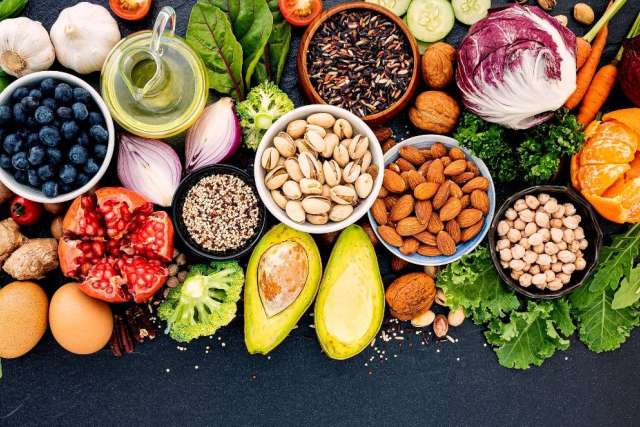
Dear Doctors: Whenever I hear about how we’re supposed to eat better and improve our diet, there’s always something about “healthy fats.” But no one ever explains what that means. What are these healthy fats that we’re supposed to be eating, and what makes them so great?
Dear Reader: It’s true that in discussions about a healthful diet, the focus tends to fall on eating lean proteins; getting a variety of fruits, vegetables, grains and legumes; and steering clear of ultra-processed foods. But healthy fats are an equally important part of the equation.
A robust body of research has revealed the wide-ranging benefits of including healthy fats in the diet. These include lowering the risk of developing heart disease, improving blood cholesterol levels, helping with blood sugar control and reducing inflammation. Healthful fats have a beneficial effect on blood pressure, and they have been shown to support gut health. There is also growing evidence that getting enough good fats in the diet helps to maintain the health of the lining of the gut. Known as the intestinal barrier, this plays a crucial role in numerous metabolic functions, including maintenance of the gut microbiome, absorption of nutrients and immune function.
Fats are a type of lipid, which are molecules that do not dissolve in water. When someone talks about healthy fats, they’re referring to lipids that, due to the specific types of chemical bonds that hold them together, remain liquid at room temperature. This is a category known as unsaturated fats.
These types of fats are further divided into two subcategories -- monounsaturated fats and polyunsaturated fats. Again, the distinction between the two arises from the chemical bonds in their structures. Polyunsaturated fats offer the same benefits as monounsaturated fats and also contain omega-3 and omega-6 fatty acids, which play an important role in brain function, skin and hair growth, bone health and metabolism.

Healthy fats are found in plant-based foods such as walnuts, flax seeds, chia seeds, soybeans, avocados and olives. They are present in vegetable oils, as well. These include olive, safflower, corn, sesame, canola, walnut and soybean oils. And don’t forget about fatty fish. These are an excellent source of a certain form of omega-3 fatty acid. Fatty fish, sometimes referred to as oily fish, include tuna, salmon, mackerel, whitefish, herring and sardines. Oysters, mussels and some types of fish roe are also good sources. A recent analysis of several large studies found that having two or more servings of fatty fish per week can help prevent cardiovascular disease in high-risk individuals.
Lovers of dark chocolate will be happy to know it contains monounsaturated fats, although in small amounts. Just remember that, while dark chocolate is rich in disease-fighting antioxidants, it also contains sugar and should be consumed in moderation.
Unfortunately, many of us don’t get adequate amounts of healthy fats in our diets. You can turn that around by cooking with vegetable oils, limiting saturated fats, avoiding trans fats and eating at least one good source of omega-3 fats each day.
The is at the forefront of clinical practice and nutrition research.
(Send your questions to askthedoctors@mednet.ucla.edu, or write: Ask the Doctors, c/o UCLA Health Sciences Media Relations, 10960 Wilshire Blvd., Suite 1955, Los Angeles, CA, 90024. Owing to the volume of mail, personal replies cannot be provided.)



